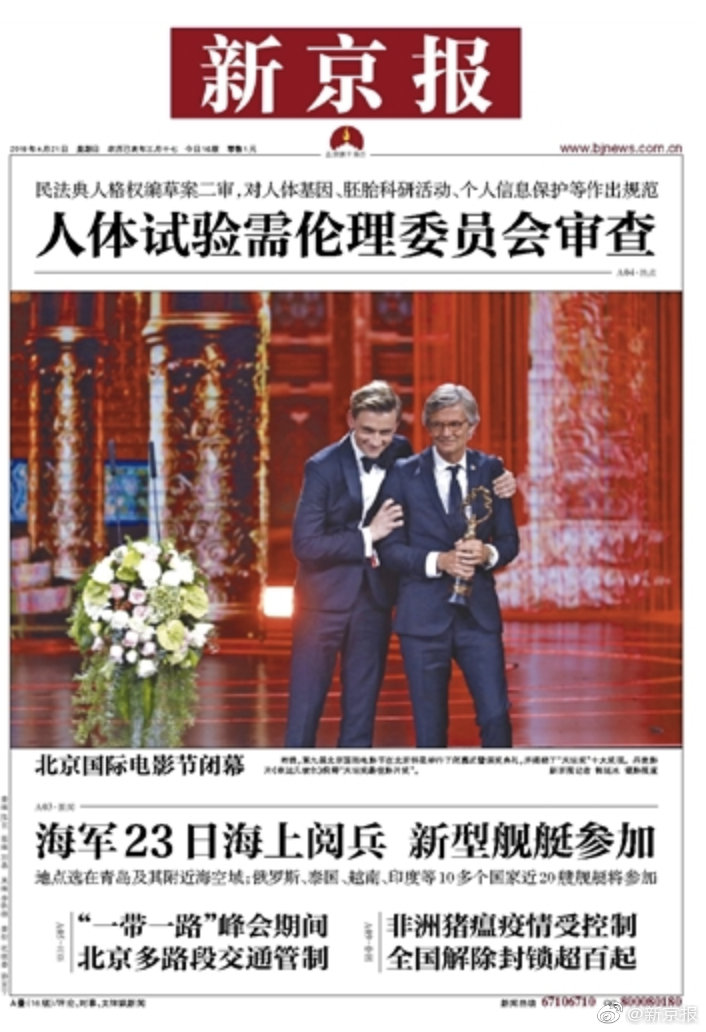【text lucah ustazah】Awkwafina Makes History with Golden Globes Win

Awkwafina on Sunday became the first performer of Asian descent to win a Golden Globe in a lead actress film category.
A first-time nominee, the rapper and actress won for her performance in Lulu Wang’s “The Farewell,” in which she plays a young woman named Billi who goes with her family to China to visit her grandmother (Shuzhen Zhao), who has been diagnosed with terminal cancer. The family decides to keep her in the dark, scheduling a wedding to gather before she dies.
Also nominated for Best Performance by an Actress in a Motion Picture — Musical or Comedy were Ana de Armas for “Knives Out,” Cate Blanchett for “Where’d You Go, Bernadette,” Beanie Feldstein for “Booksmart,” and Emma Thompson for “Late Night.”
In her acceptance speech, Awkwafina thanked Wang for giving her “the chance of a lifetime” and dedicated the award to her father, saying, “I told you I’d get a job, Dad.”
Awkwafina is the sixth woman of Asian descent to be nominated in that category, following Machiko Kyo for “The Teahouse of the August Moon” (1956), Miyoshi Umeki for “Flower Drum Song” (1961), Yvonne Elliman (who is Japanese on her mother’s side) for “Jesus Christ Superstar” (1973), Hailee Steinfeld (who is part Filipino) for “The Edge of Seventeen” (2017), and Constance Wu for “Crazy Rich Asians” (2018).
In television categories, Sandra Oh is a two-time winner, in 2005 for her supporting role in “Grey’s Anatomy” and in 2019 for her starring role in “Killing Eve.” This year, “Killing Eve” was nominated for Best Television Series-Drama and Oh’s co-star Jodie Comer was nominated for Best Performance by an Actress in a Television Series-Drama.
The first Asian to win for lead actress for a dramatic TV show was Yoko Shimada in 1981 for the miniseries “Shogun.” In 2018, Aziz Ansari won for best lead actor in a TV comedy or musical for “Master of None.”
In the category of New Star of the Year, which no longer exists, James Shigeta won in 1960 for his role in “The Crimson Kimono” and Nancy Kwan won in 1961 for “The World of Suzie Wong” and was nominated for Best Actress in a Motion Picture-Drama. Both starred in “Flower Drum Song,” which was nominated for best musical in 1962.
British-Indian actor Ben Kingsley won for best lead actor in a dramatic film and best new actor (a now defunct category) in 1983 for “Gandhi.” In 1985, Dr. Haing S. Ngor won for best supporting actor in “The Killing Fields.”
Awkwafina is also known for the films “Ocean’s 8,” “Crazy Rich Asians,” and “Jumanji: The Next Level.” Born Nora Lum in Queens, N.Y. in 1988, she became popular as a rapper with her YouTube video “My Vag” and released her solo albums “Yellow Ranger” and “In Fina We Trust.”

“The Farewell,” an American film, was also nominated in the Best Foreign-Language Film category (much of the dialogue is in Mandarin) but lost to the South Korean social satire “Parasite.” Also nominated were “Les Misérables” (France), “Pain and Glory” (Spain) and “Portrait of a Lady on Fire” (France).
In his acceptance speech, given in English and in Korean with the help of his interpreter, “Parasite” director and screenwriter Bong Joon Ho said, “Once you overcome the one-inch-tall barrier of subtitles, you will be introduced to so many more amazing films.”
He added, “Just being nominated along with fellow, amazing international filmmakers was a huge honor. I think we use only one language: the cinema.”
Bong was nominated in the Best Director category but lost to Sam Mendes (“1917”). Also nominated were Todd Phillips (“Joker”), Martin Scorsese (“The Irishman”) and Quentin Tarantino (“Once Upon a Time…in Hollywood”).
Bong and Han Jin Won were nominated for Best Screenplay but lost to Tarantino. Also nominated were Anthony McCarten (“The Two Popes”), Steven Zaillian (“The Irishman”) and Noah Baumbach (“Marriage Story”).
Winners in the Best Foreign-Language Foreign Film category have included Japan’s “Twenty-Four Eyes” in 1954, “Eyes of Children” in 1955, “Roses on the Arm” in 1956, “Yellow Crow” in 1957, and “Odd Obsession” in 1959. In each of those years, the honor was shared with films from other countries.
In the Best Foreign Language Film category, Akira Kurosawa was nominated for “Red Beard” in 1965, “Kagemusha” in 1980, “Ran” in 1985, and “Dreams” in 1990.
Among Chinese-language films, Chen Kaige’s “Farewell My Concubine” (Hong Kong) won and Ang Lee’s “The Wedding Banquet” (Taiwan) was nominated in 1993; Lee’s “Eat Drink Man Woman” (Taiwan) and Zhang Yimou’s “To Live” (China) were nominated in 1994; Zhang’s “Shanghai Triad” (China) was nominated in 1995; Lee’s “Crouching Tiger, Hidden Dragon” (Taiwan) won in 2000; Zhang’s “Hero” (China) and “House of Flying Daggers” (China) were nominated in 2002 and 2004, respectively; Stephen Chow’s “Kung Fu Hustle” (China) and Chen’s “The Promise” (China) were nominated in 2005.
Nominees from India include Mira Nair’s “Salaam Bombay” and “Monsoon Wedding” in 1988 and 2001, respectively.
Clint Eastwood’s “Letters from Iwo Jima,” which was almost entirely in Japanese, won and Lee’s “Lust, Caution” (Taiwan) was nominated in 2006; Zhang’s “The Flower of War” (China) was nominated in 2011; Hayao Miyazaki’s “The Wind Rises” was nominated in 2013; and Hirokazu Kore-eda’s “Shoplifters” was nominated in 2018.






Related Articles